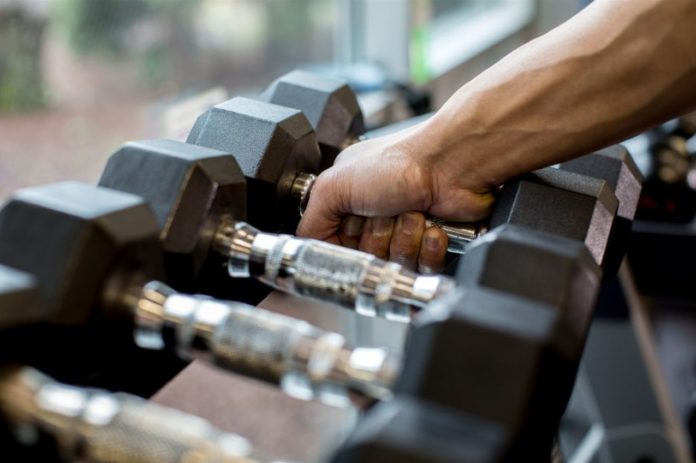In a recent study, published in the Journal of Applied Physiology, focused on finding a perfect diet for muscle growth, the researchers compared how the single amino acid leucine or its two-molecule equivalent, dileucine, affected muscle building and breakdown in ten healthy young men.
BCAs (branched-chain amino acids) like leucine, isoleucine, and valine are known for their muscle-building properties. They, like other amino acids, form proteins.
But leucine is a signalling molecule that activates muscle-building pathways in cells, according to kinesiology and community health professor Nicholas Burd and kinesiology graduate student Kevin Paulussen.
- Does This Mean We Stopped Being Animal and Started Being Human Due to ‘Copy Paste’ Errors?
- The One Lifestyle Choice That Could Reduce Your Heart Disease Risk By More Than 22%
- Aging: This Is What Happens Inside Your Body Right After Exercise
- Immune-Boosting Drink that Mimics Fasting to Reduce Fat – Scientists ‘Were Surprised’ By New Findings
- Gun Violence in America: What They Don’t Talk About at the Debate
Digestion disrupts the chemical bonds between the amino acids that comprise proteins, resulting in a stew of shorter molecules such as free amino acids and dipeptides. Burd noted that previous research indicates that the small intestine absorbs dipeptides such as dileucine more rapidly than their single-molecule counterparts.
“But few studies have examined whether dileucine in the diet makes it into the blood as a dipeptide or is first broken down into two leucine molecules,” he said.
“And no studies have examined its effects on acute muscle-building and breakdown.” Burd’s laboratory is one of a small number of research facilities set up to study muscle protein metabolism in human participants.
The new study looked at the process of muscle protein synthesis and breakdown in participants’ muscles after they had gone for 12 hours without eating. The leg muscle tissue biopsies were taken after that.
“After that, we fed them either 2 grams of leucine or 2 grams of dileucine,” Burd said. “And we studied their muscle-remodeling response for three hours.”
This was a double-blind study, which means that the data were coded in such a way that neither participants nor researchers knew who received leucine or dileucine during the study’s initial phases. Three additional muscle biopsies were performed 30, 60, and 180 minutes after participants consumed leucine or dileucine.
“We found that leucine got into the blood more quickly when participants consumed dileucine than if they had just free leucine,” Burd said. “That means that some of that dileucine is getting hydrolyzed, or cut up, before it gets into the bloodstream. But we also saw that dileucine was getting into the bloodstream intact.”
The next question was whether dileucine had any effect on muscle-building processes, he said.
“So, we looked at pathways that signal the muscle-building process, including protein breakdown as part of the remodeling process. And we found no difference in protein breakdown between the leucine alone and the dileucine condition,” Burd said. “But on the protein synthesis side, we saw that dileucine turns up the muscle-building process more than leucine does.”
Individuals who consumed dileucine produced 42 percent more new muscle proteins than those who consumed only leucine.
“To put that in perspective, exercise alone can cause a 100-150% increase in the muscle-building response,” Burd said.
The researchers also showed that animal-based proteins are the best source of dileucine in the diet. But Burd does not think people should start ingesting large amounts of animal protein or taking dileucine supplements to enhance their muscle metabolism. The study is only a first step toward understanding how the body uses dipeptides, “and focusing on a single nutrient doesn’t provide a perspective on how the overall diet and eating pattern impacts muscle growth,” he said.
Additionally, the researchers demonstrated that animal-based proteins provide the most dileucine in the diet. However, Burd does not believe that individuals should begin consuming large amounts of animal protein or supplementing with dileucine to boost their muscle metabolism. The study is only a first step toward understanding how the body utilises dipeptides, “and focusing on a single nutrient doesn’t provide a perspective on how the overall diet and eating pattern impacts muscle growth.”
“We don’t yet know the mechanism by which dileucine works,” Burd said.
- Does This Mean We Stopped Being Animal and Started Being Human Due to ‘Copy Paste’ Errors?
- The One Lifestyle Choice That Could Reduce Your Heart Disease Risk By More Than 22%
- Aging: This Is What Happens Inside Your Body Right After Exercise
- Immune-Boosting Drink that Mimics Fasting to Reduce Fat – Scientists ‘Were Surprised’ By New Findings
- Gun Violence in America: What They Don’t Talk About at the Debate
“This is just a first attempt to understand how these types of peptides are playing a role in human physiology.”
